Filter by
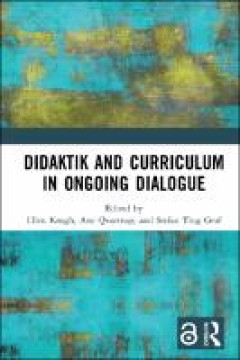
Didaktik and curriculum in ongoing dialogue
Didaktik and Curriculum in Ongoing Dialogue revives the dialogue between the continental European Didaktik tradition and the Anglo-Saxon tradition of curriculum. It highlights important research findings that bridge cultural differences and argues for a mutual exchange and understanding of ideas. Through analyses of shared conditions and cultural differences, the book invites a critical stance …
- Edition
- -
- ISBN/ISSN
- 9781003099390
- Collation
- XV, 261 p.
- Series Title
- -
- Call Number
- 375.001 DID d

Dynamics of long-life assets : from technology adaptation to upgrading the bu…
The editors present essential methods and tools to support a holistic approach to the challenge of system upgrades and innovation in the context of high-value products and services. The approach presented here is based on three main pillars: an adaptation mechanism based on a broad understanding of system dependencies; efficient use of system knowledge through involvement of actors throughout t…
- Edition
- -
- ISBN/ISSN
- 9783319454382
- Collation
- xxvi, 356p. : ill.
- Series Title
- -
- Call Number
- 658.514 GRO d
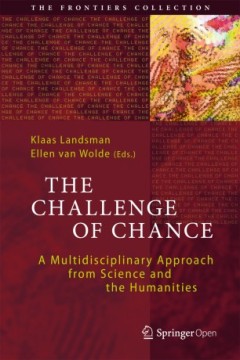
The challenge of chance : a multidisciplinary approach from science and the h…
This book presents a multidisciplinary perspective on chance, with contributions from distinguished researchers in the areas of biology, cognitive neuroscience, economics, genetics, general history, law, linguistics, logic, mathematical physics, statistics, theology and philosophy. The individual chapters are bound together by a general introduction followed by an opening chapter that surveys 2…
- Edition
- -
- ISBN/ISSN
- 9783319263007
- Collation
- vii, 276p. : ill.
- Series Title
- -
- Call Number
- 123.3 KLA t

Key concepts in philosophy: an introduction
The book provides an introduction to six fundamental philosophy concepts - philosophy, language, knowledge, truth, being and good. At the same time, it aims to initiate its readers into the process of philosophical thinking. The book is addressed to students and laypeople, but also contains new ideas for specialists. It is written in a clear, accessible and engaging style, and its author "share…
- Edition
- -
- ISBN/ISSN
- 9783896656483
- Collation
- 1 online resource (242 pages)
- Series Title
- -
- Call Number
- 100 FER k
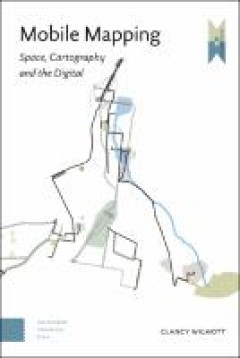
Mobile mapping : space, cartography and the digital
This book argues for a theory of mobile mapping, a situated and spatial approach towards researching how everyday digital mobile media practices are bound up in global systems of knowledge and power. Drawing from literature in media studies and geography - and the work of Michel Foucault and Doreen Massey - it examines how geographical and historical material, social, and cultural conditions ar…
- Edition
- -
- ISBN/ISSN
- 9789048535217
- Collation
- 348 p.
- Series Title
- -
- Call Number
- 526 WIL m
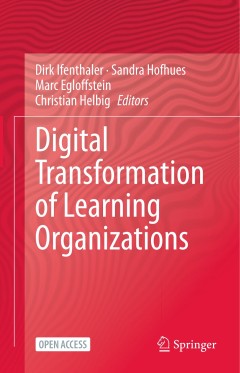
Digital transformation of learning organizations
This open access volume provides insight into how organizations change through the adoption of digital technologies. Opportunities and challenges for individuals as well as the organization are addressed. It features four major themes: 1. Current research exploring the theoretical underpinnings of digital transformation of organizations. 2. Insights into available digital technologies as well a…
- Edition
- -
- ISBN/ISSN
- 9783030558789
- Collation
- xxi, 252p. : ill.
- Series Title
- -
- Call Number
- 658.406 DIG d
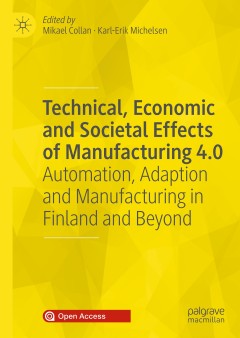
Technical, economic and societal effects of manufacturing 4.0 : automation, a…
This open access book is among the first cross-disciplinary works about Manufacturing 4.0. It includes chapters about the technical, the economic, and the social aspects of this important phenomenon. Together the material presented allows the reader to develop a holistic picture of where the manufacturing industry and the parts of the society that depend on it may be going in the future. Manuf…
- Edition
- -
- ISBN/ISSN
- 9783030461034
- Collation
- xxviii, 266p. : ill.
- Series Title
- -
- Call Number
- 670.427 TEC t
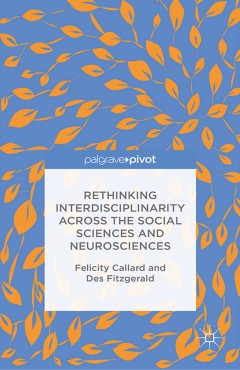
Rethinking interdisciplinarity across the social sciences and neurosciences
This book offers a provocative account of interdisciplinary research across the neurosciences, social sciences and humanities. Setting itself against standard accounts of interdisciplinary 'integration,' and rooting itself in the authors' own experiences, the book establishes a radical agenda for collaboration across these disciplines. Rethinking Interdisciplinarity does not merely advocate int…
- Edition
- -
- ISBN/ISSN
- 9781137407962
- Collation
- x, 157p. : ill.
- Series Title
- -
- Call Number
- 001 CAL r

Competing knowledges – wissen im widerstreit
Whatever societies accept as ‘knowledge’ is embedded in epistemological, institutional, political, and economic power relations. How is knowledge produced under such circumstances? What is the difference between general knowledge and the sciences? Can there be science without universal truth claims? Questions like these are discussed in eleven essays from the perspective of Sociology, Law, …
- Edition
- -
- ISBN/ISSN
- 9783110659658
- Collation
- X, 220 p.
- Series Title
- Abhandlungen der Akademie der Wissenschaften in Hamburg, 9
- Call Number
- 121 COM c

Finding, inheriting or borrowing? The construction and transfer of knowledge …
Since the dawn of humanity, people have developed concepts about themselves and the natural world in which they live. This volume aims at investigating the construction and transfer of such concepts between and within various ancient and medieval cultures. The single contributions try to answer questions concerning the sources of knowledge, the strategies of transfer and legitimation as well as…
- Edition
- -
- ISBN/ISSN
- 9783839442364
- Collation
- 408 p.; 22 cm.
- Series Title
- Mainzer Historische Kulturwissenschaften, 39
- Call Number
- 900 FIN f
 Computer Science, Information & General Works
Computer Science, Information & General Works  Philosophy & Psychology
Philosophy & Psychology  Religion
Religion  Social Sciences
Social Sciences  Language
Language  Pure Science
Pure Science  Applied Sciences
Applied Sciences  Art & Recreation
Art & Recreation  Literature
Literature  History & Geography
History & Geography